How to Start a Clothing Line
Petite Studio's founder Jenny Wang has some sage advice.
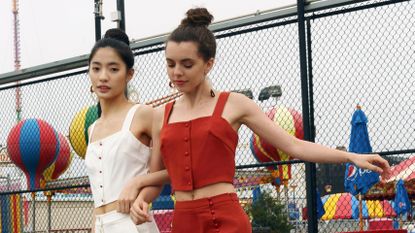
Many successful businesses are born out of a consumer need for a product, which Petite Studio's founder Jenny Wang honed in on when she started her company. Wang's two-year-old fashion label caters to women who are 5'4 and under; PS offers a mix of trendy tops, dresses, pants, and skirts with sizes ranging from XXS to large. The price point is around $89-$200 depending on the item.
"One of the biggest reasons I started the company was because when I moved to the United States, a few years ago, I had a hard time finding clothes that fit me," she said. "My friends and I, we constantly went to the kid's section to try to find clothes that worked for us."
Wang launched Petite Studio in August 2016 with her partner and husband Matthew Howell, who manages the business side of the operations. The small but mighty label is growing by the minute as evidenced by the sold out pieces on the site and has hit its stride with the petite community. Its Instagram account currently has 22.7k followers.
Ahead, Wang shares nine practical pieces of advice for anyone looking to become a fashion entrepreneur.
1. We used Shopify, which is [one] of the cheapest ways. Photoshoots cost a little bit of money, but you can also do it in a cost-effective way, if you don't require a supermodel or a super expensive photographer. I will say that for less than $50,000 you can start [your own clothing line].
2. If you do something that the market doesn't really need, you can't just create a demand for it. All of the products that we see become successful are catered to a demand from the market, so that's really important. [For us specifically], we saw a need for [clothes that spoke to the petite community]. I follow the blogger Extra Petite and if you go to her [comments], there are tens of thousands of girls asking, "Where did you find these petite pants that fit you so well?" Girls [want to know where to find these pieces] and [personally], I wasn't able to find [any brands out there] that worked for me.
3. I saw that the Asian [fashion] community really needed service. I'm Asian, I know how they think, and I know what they would want to shop. I know the [clothing] styles they want and I [understand] their struggles. A lot of [Petite Studio's] customers are Asian.
Stay In The Know
Get exclusive access to fashion and beauty trends, hot-off-the-press celebrity news, and more.
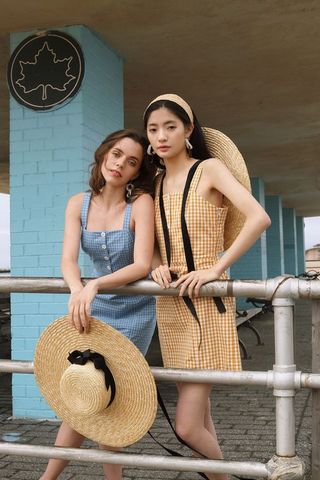
4. I started with two people. It was me and [this one other] girl. [She was also] the graphic design, model, photographer, and social media person. We have almost 10 people right now. I think it's very important to [launch your product right away] rather than plan for a really long time. Don't just do it without research [though].
5. The designer is definitely one of the most important roles in a fashion company, especially if the founder herself is not a designer. I suggest people use recruiters if you're young and inexperienced with the hiring process. We [found people by] posting on school websites such as Parsons and FIT and [we] worked with a recruiter. [Our current team consists of] a logistics crew, a design assistant, a merchandizer, the marketing team, and, now, a small production and assembling team in China.
6. I'm lucky that my family already knew [someone overseas with a factory for production]. If you don't know anyone, I would suggest starting with a factory that's near you, so you can regularly visit it. [This is logistically important because] the fabric might not come as you expect it or when they do the grading, they might mess up the size and then that [affects] 100 pieces. Really pay attention to the factory.
7. I like to utilize the influencer experience. I email everyone most of the time, but we also have a public relations person that helps me to reach out to influencers that we've been working with over the past two years, who I love. I keep in touch with them and send them pieces every season.
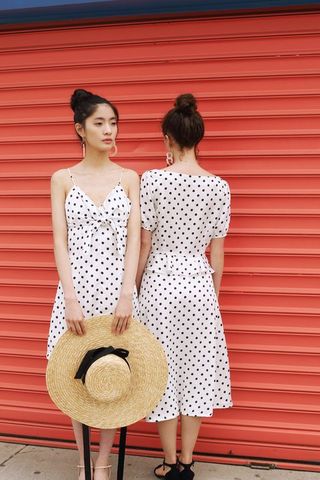
8. In my personal experience, it's really helpful that I have a business background. I think a fashion designer [without business experience] tends to think more from a design perspective, but I tend to think from a customer perspective [because I don't have that design experience]. I look at the numbers every day to see [what products] sell well and what doesn't in order to learn from that. [Don't be afraid] to ask for help. The part that I really asked for a lot of help on was the business management and function part. You can learn from other people and their experiences. Also, read more business-related books [like The Lean Startup by Eric Ries].
9. I think it's very important for an entrepreneur to self-reflect. I wish I had more experience [when I first started out], but because I didn't know a lot of things, I'm [still] learning, too. If I know something's not working, I will pivot immediately. Also, recognize your weaknesses. Recognize something you're not good at [and learn to improve on that].
Marina Liao is the former fashion news editor at Marie Claire, where she covered celebrity style (from Meghan Markle to Katie Holmes), fashion trends, and shopping advice, plus conducted original interviews with industry insiders. She's now the Senior Commerce Editor at House Beautiful, where she owns coverage on deals and sales across home decor and accessories, in-depth product reviews on furniture and appliances, as well as news around new product launches since 2023. With help from leading designers and tastemakers, Marina spotlights quality products while tracking current design trends, a skill she’s mastered over six years in fashion media. Marina holds a bachelor’s degree in journalism from Stony Brook University, beginning her career in narrative-driven commerce coverage as an editorial assistant at PopSugar.
-
 Nicole Richie Says Paris Hilton Friendship is More Like a Sisterhood
Nicole Richie Says Paris Hilton Friendship is More Like a SisterhoodThey have "a friendship that's longer than most marriages."
By Alicia Lutes Published
-
 James Middleton Recreated the Famous ‘Love Actually’ Cue Card Scene to Help Spread an Important Message
James Middleton Recreated the Famous ‘Love Actually’ Cue Card Scene to Help Spread an Important Message"Dogs are for life—not just for Christmas."
By Kayleigh Roberts Published
-
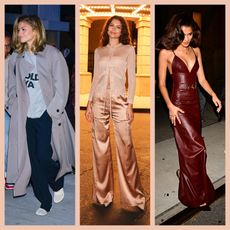 30 Things Zendaya Would Probably Buy in Nordstrom's Half-Yearly Sale
30 Things Zendaya Would Probably Buy in Nordstrom's Half-Yearly SaleFrom polished trench coats to sultry date-night dresses.
By Lauren Tappan Published
-
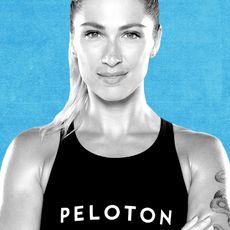 Peloton’s Selena Samuela on Turning Tragedy Into Strength
Peloton’s Selena Samuela on Turning Tragedy Into StrengthBefore becoming a powerhouse cycling instructor, Selena Samuela was an immigrant trying to adjust to new environments and new versions of herself.
By Emily Tisch Sussman Published
-
 This Mutual Fund Firm Is Helping to Create a More Sustainable Future
This Mutual Fund Firm Is Helping to Create a More Sustainable FutureAmy Domini and her firm, Domini Impact Investments LLC, are inspiring a greater and greener world—one investor at a time.
By Sponsored Published
-
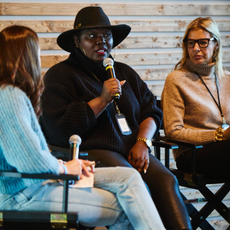 Power Players Build on Success
Power Players Build on Success"The New Normal" left some brands stronger than ever. We asked then what lies ahead.
By Maria Ricapito Published
-
 Don't Stress! You Can Get in Good Shape Money-wise
Don't Stress! You Can Get in Good Shape Money-wiseYes, maybe you eat paleo and have mastered crow pose, but do you practice financial wellness?
By Sallie Krawcheck Published
-
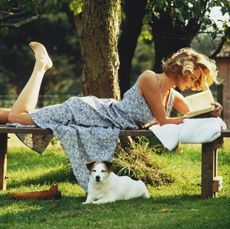 The Book Club Revolution
The Book Club RevolutionLots of women are voracious readers. Other women are capitalizing on that.
By Lily Herman Published
-
 The Future of Women and Work
The Future of Women and WorkThe pandemic has completely upended how we do our jobs. This is Marie Claire's guide to navigating your career in a COVID-19 world.
By Megan DiTrolio Published
-
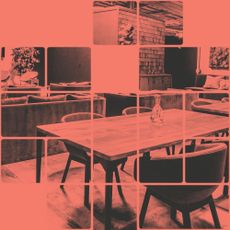 Black-Owned Coworking Spaces Are Providing a Safe Haven for POC
Black-Owned Coworking Spaces Are Providing a Safe Haven for POCFor people of color, many of whom prefer to WFH, inclusive coworking spaces don't just offer a place to work—they cultivate community.
By Megan DiTrolio Published
-
 Where Did All My Work Friends Go?
Where Did All My Work Friends Go?The pandemic has forced our work friendships to evolve. Will they ever be the same?
By Rachel Epstein Published